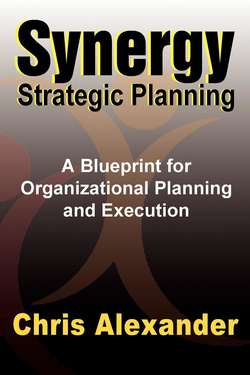Читать книгу Synergy Strategic Planning - Chris Alexander - Страница 16
На сайте Литреса книга снята с продажи.
2. Does the vision take all possibilities into account?
ОглавлениеThis question is all-important because it examines all the potential possibilities—both positive and negative—as a prelude to success. To be wise in your planning is of great value. Aristotle Onassis, the shipping magnet and billionaire who married Jackie Kennedy, was considered by many to be wise and prudent in the choices he made. He used a great analytical technique that explored all high- and low–road possibilities. When forecasting, predicting, and planning for success, he would ask his executive team a series of “what-if” questions. First, he would list all the what-if factors in the external environment that might influence the success of the plan. Then, he would turn his team’s attention to the internal environment of his business and apply the same technique, asking prudent and searching what-if questions.
Once this internal and external scanning process was concluded in the planning process, the Onassis team would carefully examine how their strategies, judgments, and decisions would impact the ongoing operational effectiveness. Time after time this method paid off handsomely.
There are many benefits to asking the what-if question. This approach, commonly know as scenario planning, allows a team to predict with some degree of certainty what actions need to be taken if certain events happen. It removes surprise, stress, and anxiety, and helps to rationalize decision-making by anticipating possible changes. It eliminates the rush to judgement that often occurs with unexpected blockages. Change then becomes a source of strength rather than a source of stress.
